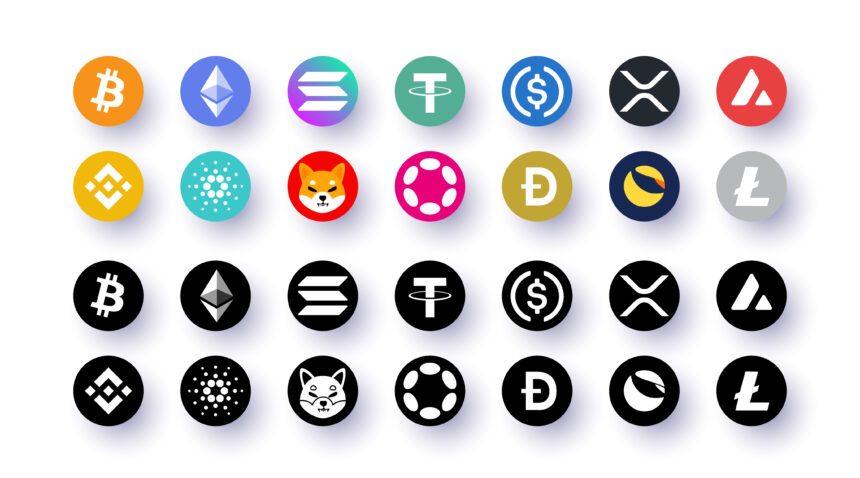In recent years, the world of digital assets has witnessed an incredible surge in popularity, with Non-Fungible Tokens (NFTs) and cryptocurrencies taking center stage. These innovative technologies have revolutionized the way we perceive and interact with digital assets, and their impact is being felt across various industries worldwide. South Africa, known for its vibrant art scene and growing interest in cryptocurrencies, is not immune to this global trend. In this article, we will explore the synergy between NFTs and cryptocurrency in the South African context.
To understand the significance of NFTs and cryptocurrencies in South Africa, it is essential to grasp their individual concepts. Cryptocurrencies, such as Bitcoin and Ethereum, are decentralized digital currencies that utilize blockchain technology to enable secure and transparent transactions. These digital assets have gained popularity as alternative investment vehicles and as a means of conducting online transactions. South Africa, like many other countries, has witnessed a growing interest in cryptocurrencies as individuals seek to diversify their investment portfolios and explore new financial opportunities.
On the other hand, NFTs represent unique digital assets that are verifiably scarce and indivisible, thanks to blockchain technology. Unlike cryptocurrencies, which are fungible and interchangeable, NFTs allow for the ownership and trading of one-of-a-kind digital items, such as artwork, music, videos, and virtual real estate. These unique characteristics have attracted artists, creators, and collectors who see immense potential in leveraging NFTs to authenticate and monetize their digital creations.
South Africa’s art scene, characterized by its diverse and talented artists, is gradually embracing the possibilities presented by NFTs. The use of NFTs allows artists to assert ownership of their digital creations, protecting them from unauthorized duplication or plagiarism. By tokenizing their artwork as NFTs, artists can sell their pieces directly to collectors, eliminating intermediaries and expanding their reach beyond traditional galleries. This democratization of the art market has the potential to empower South African artists and increase their exposure on a global scale.
Moreover, NFTs present an opportunity for artists to earn ongoing royalties whenever their digital creations are resold. The smart contracts underlying NFTs can be programmed to automatically distribute a percentage of the proceeds to the original creators whenever their artworks are traded in the secondary market. This feature addresses the long-standing issue of artists losing out on profits as the value of their work increases over time. By participating in the NFT ecosystem, South African artists can secure a more sustainable income stream while retaining control over their intellectual property.
From a broader perspective, the synergy between NFTs and cryptocurrency in South Africa extends beyond the art world. As cryptocurrencies gain mainstream acceptance, businesses are exploring the integration of digital assets into their operations. For instance, companies can tokenize their physical assets or offer tokenized ownership stakes, allowing investors to participate in fractional ownership. This concept has the potential to revolutionize real estate, venture capital, and other industries, making investment opportunities more accessible and liquid.
Furthermore, the adoption of NFTs and cryptocurrencies in South Africa can foster financial inclusion and empower individuals who are excluded from traditional financial systems. With a significant portion of the population lacking access to formal banking services, cryptocurrencies can provide an alternative means of conducting transactions and accessing financial services. NFTs, with their potential for creating and monetizing digital content, can also serve as a vehicle for economic empowerment, enabling individuals to leverage their creativity and digital skills for financial gain.
However, as with any emerging technology, the synergy between NFTs and cryptocurrencies in the South African context also poses challenges. The volatile nature of cryptocurrency markets can expose investors to financial risks, necessitating regulatory measures to protect consumers and promote market stability. South Africa’s regulatory framework is still evolving in response to these developments, and it is crucial for policymakers to strike a balance that encourages innovation while safeguarding investor interests.
In conclusion, the synergy between NFTs and cryptocurrency presents a promising landscape for South Africa’s digital asset ecosystem. From empowering artists to revolutionizing traditional industries and promoting financial inclusion, NFTs and cryptocurrencies have the potential to reshape the country’s economic and cultural landscape. As South Africa navigates this new digital frontier, it is essential for stakeholders to collaborate, foster innovation, and ensure that the benefits of these technologies are accessible to all. By embracing this synergy, South Africa can position itself as a hub for digital creativity and financial innovation in the African continent and beyond.










